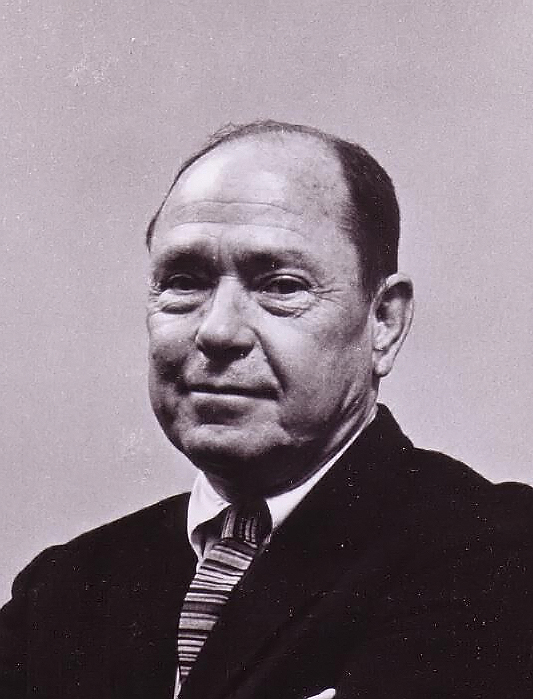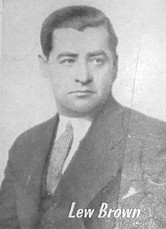
One of the greatest composers of Tin Pan Alley
Harold Arlen
InducteeA major contributor to American songbook with "Over the Rainbow", "That Old Black Magic", "Stormy Weather" and dozens more
* Harold Arlen was also the 1982 recipient of The Johnny Mercer Award, the SHOF’s highest honor
Harold Arlen was born Hymen Arluck, the son of a synagogue cantor, was born in Buffalo, New York on February 15, 1905, and emerged as one of the greatest of all American composers and songwriters, writing extraordinarily complex melodies and harmonies that somehow remained accessible to a broad popular audience.
He grew up in Buffalo attending public schools and private music study with instructors Arnold Cornelissen and Simon Bucharoff. By age 7 he was singing in his father’s synagogue chore and by age 15 he had become a professional pianist and entertainer in nightclubs and lake steamers. In his late teens, he organized The Snappy Trio, which later became The Southbound Shufflers, and the trio found its way to New York City. In Manhattan, Arlen found a home as a singer, pianist, and arranger with dance bands and eventually with Arnold Johnson’s pit orchestra for the Broadway revue George White’s Scandals of 1928. Arlen appeared at the Palace Theatre in New York and did several tours with Loew’s vaudeville circuit.
He continued to work on Broadway writing songs for musicals 9:15 Revue, Earl Carroll Vanities (1930 and 1932), Americana, George White’s Music Hall Varieties, The Show is On. He also wrote entire scores for the Broadway shows You Said It, Cotton Club Parade, Life Begins at 8:40, Hooray For What, Bloomer Girl, St. Louis Woman, House of Flowers, Jamaica, Saratoga and Free and Easy (a blues opera).
Arlen collaborated with the greatest of the Tin Pan Alley lyricists, including E.Y. "Yip" Harburg, Johnny Mercer, Ted Koehler, Leo Robin, Ira Gershwin, Dorothy Fields and Truman Capote.
Arlen was also active in Hollywood producing some of the greatest film musicals of the era including The Wizard of Oz, Let’s Fall In Love, Blues In the Night, Star Spangled Rhythm, Cabin In the Sky, Up in Arms, Kismet, My Blue Heaven, Gay Purr-ee, Down Among the Sheltering Palms and A Star if Born.
The Harold Arlen catalog boast the individual standards “Sweet and Hot” (1930, lyric by Jack Yellen), “Between the Devil and the Deep Blue Sea” (1931, lyric by Ted Koehler), “I Got A Right To Sing the Blues” (1932, lyric by Ted Koehler), "Stormy Weather" (1933, with Ted Koehler), “Ill Wind" (1934, with Ted Koehler), "Fun to Be Fooled" (1934, with Ira Gershwin and E.Y. Harburg), "Last Night When We Were Young" (1935, with E.Y. Harburg), "Blues in the Night" (194 1, lyric by Johnny Mercer), "That Old Black Magic" (1942, with Johnny Mercer), "Happiness is a Thing Called Joe" (1942, with E.Y. Harburg), "My Shining Hour" (1943, with Johnny Mercer), "One For My Baby" (1943, with. Johnny Mercer) "Ac-Cent-Tchu-Ate the Positive" (1944, with Johnny Mercer), "Out Of This World" (1945, with Johnny Mercer), "Any Place I Hang My Hat is Home" (1946, lyric by Johnny Mercer), "I Wonder What Became of Me" (1946, with Johnny Mercer), "Come Rain or Come Shine" (1946, with Johnny Mercer), and "The Man That Got Away" (1954, with Ira Gershwin).
With a catalog of some of the greatest standards from Tin Pan Alley, the standout continues to be the unforgettable score for the 1939 film The Wizard of Oz. The film score includes a collection of songs, most notably the celebrated "Somewhere Over The Rainbow".









